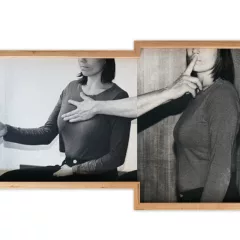Queer Voice at ICA is a clear sign of how comfortable we’ve become with people, places and things that are queer, a word primarily defined by Merriam-Webster as characterizing things that are “differing in some odd way from what is usual or normal,” but which has come to have a second meaning encompassing nearly everything and everyone deviating from gender and sexual norms.
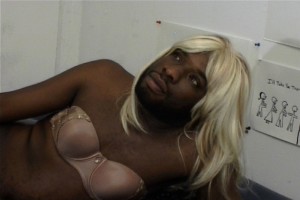
The show provides both a healthy dose of both genderqueer and queer in the Merchant-Ivory “How odd!” sense. With more than three hours of rollicking, weird, obscure, hectoring and seductive video and audio material, the show’s a sushi sampler with a cupcake chaser. Best to take it slow.
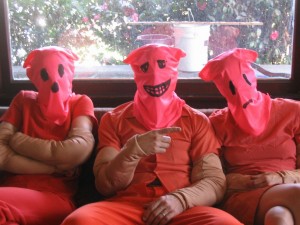
Much in the nine-artist show is self-referential, with the creator as star of the piece. Andy Warhol blazed their trail with his experimental films. He also carried a tape recorder and his Polaroid camera and taped himself talking with everyone he knew. He called the tape recorder his wife. A selection of Warhol’s tape recordings plays in a little silver-walled room as part of Queer Voice, but the audio is so muffled it’s all but impossible to hear. It’s a shame, since the recordings are not widely available. Headphones, please, and a bench while you’re at it!
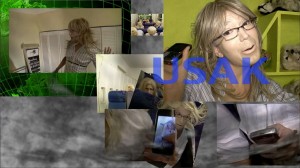
None of the work seems particularly motivated to be your friend or in search of viewer approval, although John Kelly’s Joni Mitchell impersonation is poignant and compelling enough to make you want to seek him out. Kalup Linzy’s soap-opera parody “Conversations wit de Churen” stands out for its lovable characters and charming, comprehensible plot lines regarding the foibles, lives and loves of an extended African-American family. There is familial tension and backstabbing—much of it played out in phone calls between characters in settings that look like the artist’s apartment. Linzy, a charismatic performer, plays all the major roles from Grandma to Taiwan, a cross-dresser with a marriage proposal from his boyfriend. The seven episodes, which range in length from nine to 41 minutes, are funny and absorbing.
Though worlds apart in effect, Linzy’s work has a lot in common with Ryan Trecartin’s in that both use vocal affectations (falsetto especially) and crossdressing in works that lampoon a small slice of the world.
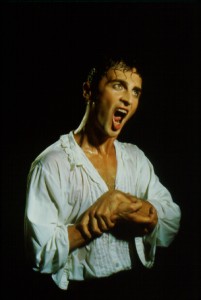
Trecartin’s 40-minute “P.opular S.ky (section ish),” 2009, features a tribe of heavily made-up, gender-ambiguous characters who tumble around a house, a car, a shopping mall and an airplane talking mostly nonsense at breakneck speed. A plotless chain of events ensues on split screens and in Internet pop-up bubbles. Trecartin, like Linzy, is the star of the show, his weird-eyed and tousle-haired presence standing out in this queer crowd. Trecartin’s crew talks urgently into the camera, of which they are highly aware. They are hungry for your ears even though a lot of what they say (to say nothing of what they do) makes no sense. “I’m a stepping stone. I’ve accepted it, have you?” is a phrase that sounds right out of a 12-step program, but in Trecartin’s world, all phrases are equal and this one seems to be selling like everything else here. The anticommercial undertone sinks in more the longer you spend with the piece, and, if you like, you can spend a great deal of time with it, comfortably lounging on one of two metal-framed beds set up in the screening room.
There’s a lot of audio bleed between the many simultaneous videos in Queer Voice, which gives the show a queer audio voice all its own. But the cacophony is nothing more than what passes for normal today in our multitasking world of watching TV while surfing the Web and texting.
Queer Voice
Through Aug. 1.
Institute of Contemporary Art
118 S. 36th St.
215.898.7108
icaphila.org
Read this article at Philly Weekly.



